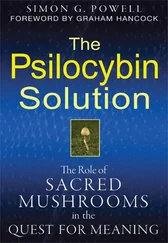“That’s true,” Tillie agreed. “At first, we all scattered. It was possible to go days or even weeks without coming across another resident. If you wanted human interaction, you could find others, and some did. They banded together in little groups. Some of us made a point of avoiding everyone else completely. And it was no problem back then.”
Wilson resumed his narrative. “More and more people arrived, followed, inevitably, by conflicts.”
“It reminds me of the description of the first settlers arriving on this continent.”
“There is more to that comparison than you know, Elias. But I am getting ahead of myself. The first conflicts were resolved on an ad hoc basis. Alliances rapidly formed and were quickly broken. Populations shifted around the complex. Segregation was rampant as many of the clusters identified themselves by the color of their skin or their religious beliefs or…well, it just burgeoned. Each of those groups believed that this superficial commonality would somehow provide a cohesiveness that never fruited.
“For some, the constant migration was to avoid conflict; for others, it was to find it. All the while, the ability to find a piece of Aegis that you could call your own and where you could be left alone became harder and harder to manage.
“People need a leader, someone who can impose order upon them and enforce it. In the absence of such a man or woman, the uprising, the riot, was an inevitability. But it served its purpose. It demonstrated to the survivors the undeniable need for structure, for governance. Walden and Madison were formed. ZooCity came into existence as a result of many feeling disenfranchised. They could not relate to either entity, nor did they feel that either enclave accepted them.”
“Aegis really is a microcosm of society, isn’t it?” Elias asked him.
“In many ways it was.”
“Was?”
“Yes. In the time after the formation of the enclaves, there was a shift in the paradigm. Subtle, at first, but discernible.”
“What happened?”
“Less and less of the newbies were deferred suicides,” Tillie answered for Wilson.
“Deferred…?”
Wilson ignored the interruptions and continued his explanation. “In the early years of Aegis, the vast majority of entrants, or newbies, as Tillie refers to them, came to this place for the purpose stated in its initial proposal to the American public. They checked in to Aegis rather than committing suicide. There were some, such as the young girl from Racine we discussed before, who came here for other, more spurious reasons. But most fit into the first category.
“That has changed. Tillie and I have both noticed that in the last year or two the largest percentage of arrivals, by far, are not coming to Aegis as an alternative to killing themselves.”
“Is there a common reason they have come?”
“To get away from out there,” answered Tillie.
Wilson nodded. “That would appear to be the case. As you mentioned a moment ago, just as the Pilgrims voyaged to America to escape England and the King, most of our recent arrivals have been men and women who have given up on society. They no longer feel as though they belong to what the culture has become. They can no longer relate to the music, the movies, the politics…even their immediate surroundings when they venture forth into the public arena. Yet they are at a disadvantage because there is not a culture anywhere in the world which attracts them, nor is there an available plot of land, ungoverned and unspoiled, to which they may flee as did the Pilgrims. So they have come to Aegis. And their numbers are growing exponentially.”
“That’s amazing! I’ve heard nothing about this on the outside.”
“Of course you wouldn’t. I would doubt that those leaving would announce their reasons.”
“And I’m guessing from what you said earlier, most of them have gone to Madison.”
“Indeed. In fact, their arrival, the growth in their numbers, has focused and crystallized the foundational beliefs of Madison considerably.”
“I am surprised that so few of them go to Walden. My visit was brief, and I admit it wasn’t my cup of tea, but it did seem pleasant there.”
Wilson permitted a slight smile to curl his lips. “Many did try Walden first. It seemed to them that it was closer to an idyllic structure than Madison with its more visible rigidity. They quickly changed their minds.”
“Why is that?”
“They recognized it as what they were running away from,” answered Tillie.
“Really?”
“Yes,” she snapped. “It usually took them about a week to figure out that all of that politically correct pseudo-tolerance, finding one’s inner child, celebration of victimhood, building your self-esteem, narcissistic garbage is what was causing all of the problems out there.”
“How do you really feel?” Elias asked with a smirk.
“It’s true! The only newbies who went to Walden and wanted to stay there were the deferred suicides, not the societal refugees Wilson described.”
“And now we are finally answering your original question, Elias,” Wilson said.
“I’ve forgotten what it was.”
“You inquired as to why there were so few remaining at Walden. The answer lies within what Mathilda so eloquently described. That particular enclave found itself to be the last refuge of the desperate.”
“That should still be a sizable number.”
“It should, but for one small issue. It seems that for those unfortunate souls, the decision to enter Aegis only briefly delayed the inevitable.”
“They killed themselves anyway?”
“Nearly all of them have.”
“I don’t understand. If they escaped whatever it was out there that was driving them to the brink, why would they do it in Aegis?”
“I think,” Tillie replied, “it was because they couldn’t get the right wine to go with their organic veggie burgers.”
Wilson glanced over at Tillie, a subtle, chiding expression on his face, as he continued, “In a sense, I believe that Mathilda was correct in her assertion that Aegis is a psychological or political Petri dish. The jury is still out in my mind as to whether that was the deliberate intent of its creators. However, it has become a de facto social experiment. The very nature of Aegis had an accelerating influence on the Darwinian process of selection of the fittest.”
Risking another look of disapproval from her old friend, Tillie added, “And the Petri dish on the left, the one labeled ‘Walden,’ is full of nothing but an almost dead crust.”
Wilson pursed his lips. “Crudely put, but that is essentially the case.”
“What about ZooCity? That colony is now wiped out by Kreitzmann. But prior to that happening, how was it faring?” Elias addressed Wilson.
“It, too, was on the decline.”
“From suicides?”
“Not at all. Again, you must remember that Aegis hastens the progress of the social experiment. ZooCity attracted the bored, the hedonistic, the disenfranchised, and the nihilistic. The appeal of gangs out there is the perceived, fallacious concept that the underprivileged in society exist as a result of a deliberate and calculated oppression. One of the inescapable realities of human nature is that when you oppress people, they will band together. That coalition has taken many forms throughout our history. In some cases the result has been the overthrow of the government which has been oppressing them, as was the case with the French Revolution. In America’s past, workers were grossly abused. They banded together and formed labor unions. The ensuing shift of power between the worker and the employer caused all of the most egregious offenses against the workers to be corrected or eliminated. There have obviously been moments in history when the natural urge to self-organize has been beneficial to the oppressed, when oppression has been ameliorated somewhat.
Читать дальше












